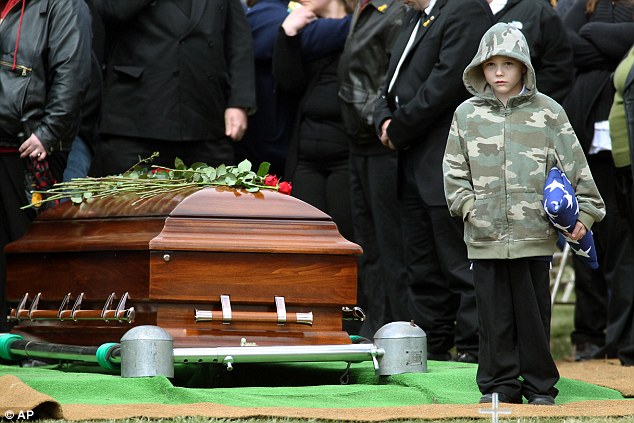Well, I wanted to focus on peace not war during the Christmas season, but it seems I can’t get away from it. I watched a documentary recently called Absent (2010) about “the social pandemic of fatherlessness affecting today’s societies.” It doesn’t tell us what we don’t already know: that boys and girls very much need a father, one that is “engaged” and loving, in order to grow into healthy, self-confident adults. It goes on to explain why that is, and it also offers some insight into how and when this pandemic started.
I thought they would attribute the trend of fatherlessness to the welfare state and its impact on families. Instead, however, they trace the beginning of this pandemic back to World War II, in which over 16 million American soldiers fought, most of whom were men. One million of those men never returned. This, say the makers of the film, was the beginning of the trend of fatherlessness. Not only did the war deprive millions of children of fathers in a physical sense, but the soldiers who returned from the war came home with so many mental and emotional wounds, that they ended up being “absent” in other ways. Suffering from PTSD, many veterans of that war could not engage emotionally with their children, and they became depressed, alcoholic, or abusive. This greatly affected the next generation, who were deeply wounded by their fathers’ absence, whether physical or emotional. It’s a problem that seems to compound with each succeeding generation, if the cycle isn’t broken.
How many children since 2003 have been deprived of their fathers’ presence in their lives due to the War on Terror? How many mothers are basically raising their children alone because their husband is deployed on his fourth or fifth tour of duty? I’m afraid we know all too well the affect this will have. I’m quite sure that no number of stories about their father’s heroism in distant lands could make up for his day-to-day absence in their lives.
The documentary also delves into the subject matter of gender differences. The makers of the film firmly believe that boys and girls are different (you don’t say!) Every little boy, they say, has a warrior inside him. They say that this is a good thing; it’s the way it supposed to be. We want men in society who are strong and fearless, who are capable, for example, of standing up to oppressors, of standing up for justice, of protecting the innocent. Aggression, in boys, they say, is only natural, and we damage little boys when we expect them to repress their aggression and act like girls. The trick is to teach them how to use it for good. The filmmakers also point out that in Western culture there is an absence of any “rites of passage” that signal to a boy that he has become a man.

The father of the boy photographed above: Real-life Superman: He had a tattoo on his arm bearing a superhero emblem
The trick, the filmmakers say, is to help boys grow into men by helping them to channel their aggression and use it in productive ways, to teach them how to be good men, how to use their power to serve others. It isn’t hard to imagine how so many men, left without fathers, without any guidance in becoming a man, would be attracted to the military a way to test their mettle and become the warriors they feel it is their calling to be. The story goes that the man pictured above was killed when he saved an Afghan child from being hit by a truck. That is heroic and commendable, but we can’t forget how many children have died overseas, too, as a result of our military presence. How can we teach men that the most heroic and manly thing they can do is to be good and present fathers to their own children right here at home? It would not be an exaggeration to say that the makers of this film believe that the fate of American society rests in the hands of America’s fathers. Bring them home! Our kids need them more.
